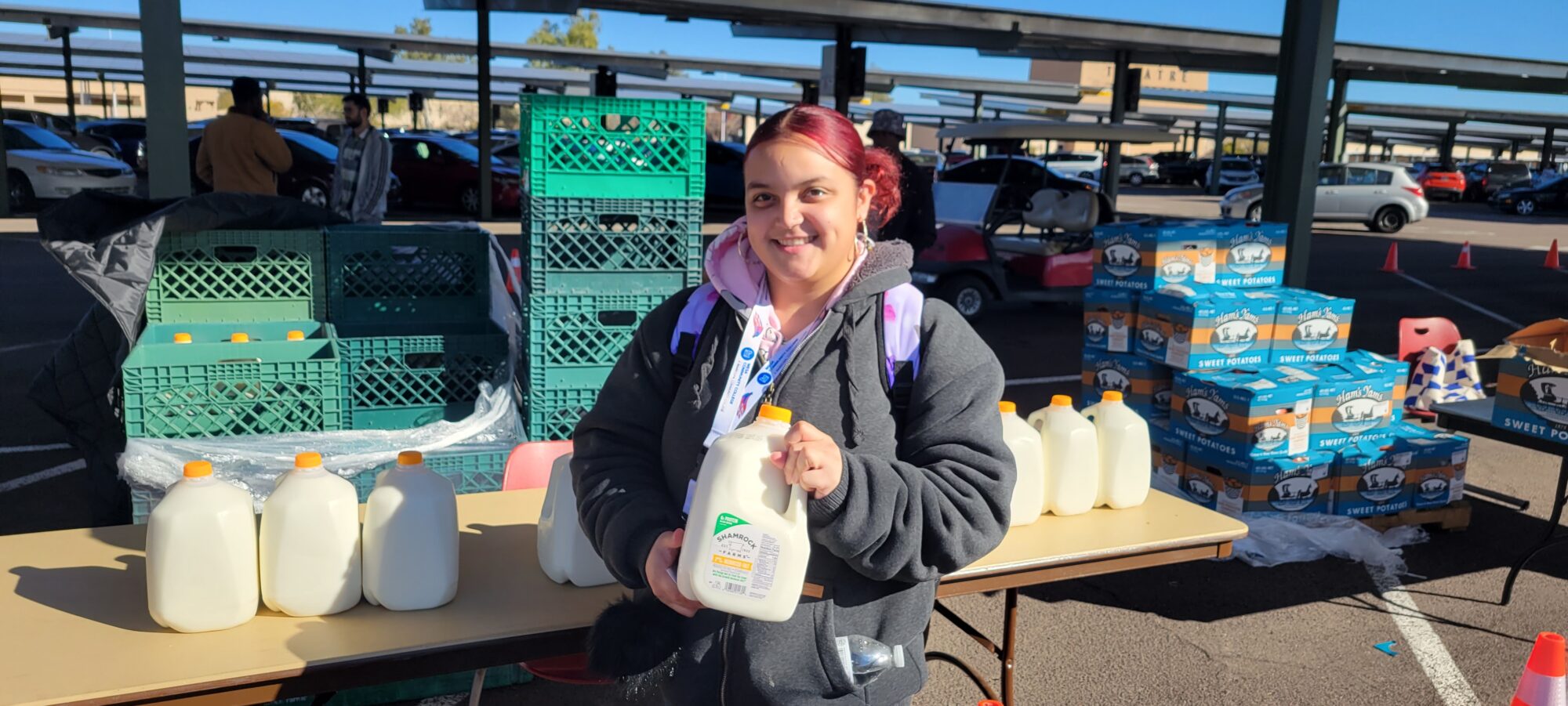
College hunger is a very prevalent issue with lasting impacts on students; however, many colleges and universities do not realize how many of their students are experiencing food insecurity. The “broke college student” identity is very real for nearly 40% of students pursuing higher education.* For many young students, it is their first time living on their own, supporting themselves and learning to budget. Many students have full-time or part-time jobs on top of their schooling to be able to afford to live. Some students may be a single parent or choosing to live off a single-income so one partner could pursue schooling. With rising tuition, rent, gas and food costs, it is very hard for college students to cope with inflation. These situations and others are contributing to rising rates of food insecurity among those pursuing higher education. It is a vicious cycle, as pursuing a college education often leads to more job opportunities and especially those with higher salaries. It is often advantageous for people to pursue a degree even with the threat of debt because of the increased opportunities an education provides. Glorianni, a student at Mesa Community College (MCC), shares her experience with college hunger.
Glorianni, 20, is pursuing her associates degree at MCC Dobson, with hopes to transfer to UC Davis to pursue her dream career in Veterinary medicine. Glorianni has faced many unprecedented challenges that have impacted her academic career and is working hard to get her life back on track.
Originally from Puerto Rico, her mother and 4 siblings moved to the states when she was nine years old to seek better opportunities. Her parents had just split, and her father was financially supporting their family in Puerto Rico at the time. They moved to Connecticut, where hope turned into heartache.
Glorianni’s mother, who was supporting the five kids on her own, got into a car accident that permanently damaged her back and is hardly able to work because of it. The family moved around from shelters so that the kids would have a safe place to sleep at night and still be able to attend school during the day. Glorianni’s mom got a job as a housekeeper and worked through immense pain to support her kids. When Glorianni was 18, her mom remarried and the family found financial stability again. Glorianni was able to begin pursuing her higher education at a local community college. But this too came to a quick halt as Glorianni took to working full time to help support her family.
Some time later, Glorianni’s stepfather moved to Arizona and she followed about a year later. Then her mom and two younger siblings moved quickly after. Hoping for a new start in Arizona, Glorianni began a part-time job at Walmart and enrolled in college again at MCC.
Although none of her credits from Connecticut transferred over, Glorianni feels optimistic at her new school. She is so grateful to her professors for helping her and connecting her to resources she needs to support herself right now. This is how she found out about the MCC Cares Food Distribution in partnership with United Food Bank. She attended her first ever distribution this February, and has cooked some delicious recipes with her mom. Her mom was “so excited about all the fresh fruits and vegetables. She couldn’t believe all the red peppers they got!” Glorianni was recently told she was pre-diabetic and has to be more conscious about her diet. The food she got from the distribution was “healthy and good for the diet my doctor suggested. I can learn to cook healthier foods with the variety of fruits and veggies I was provided.” Glorianni says “Thank you” to United Food Bank and MCC for taking a big stress off her plate.
United Food Bank has 14 partnerships with schools and colleges around Arizona. We are committed to helping students and families thrive by taking an extra stress of their plate. If you or anyone you know is experiencing hunger or food insecurity, visit www.unitedfoodbank.com/get-help for more resources on getting a food box like Glorianni did.
If you would like to support United Food Bank in their efforts to feed Arizonans, visit www.untiedfoodbank.org/donate. We couldn’t have the impact we do without the support of our donors, sponsorships and volunteers.
*In 2021, Feeding America data showed that 39% of college students are considered low income. Read more about it here: Why college students face hunger.
Written by Sarah Bathe